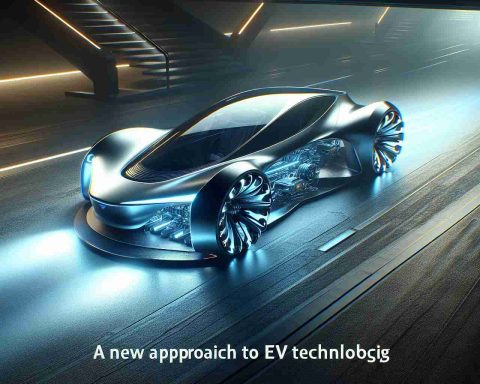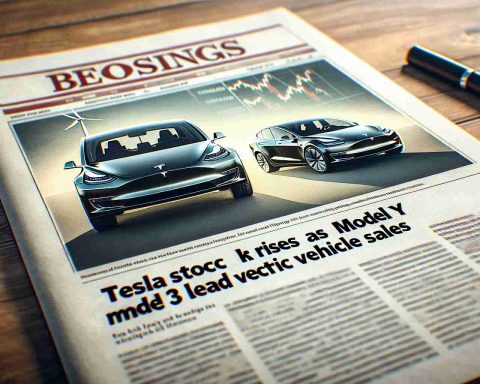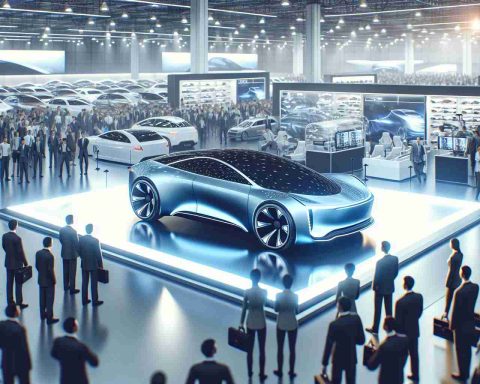A Transformative Step for Electric Vehicles
Wisconsin is making headlines as it enhances its electric vehicle (EV) infrastructure, paving the way for a greener transportation future. With the support of the National Electric Vehicle Infrastructure (NEVI) Formula Program, charging your electric car is about to get a lot easier across the state.
Recently, fast-charging stations powered by federal funds were introduced at various Kwik Trip locations in cities like Ashland, Menomonie, and Chippewa Falls. This initiative follows the Bipartisan Infrastructure Law of November 2021, which allocated significant resources for EV charging developments nationwide. Notably, the state is collaborating with private enterprises, as it does not own or operate these charging stations. A total of 24 Kwik Trip stores will install fast chargers, primarily servicing those traveling along major highways.
The Wisconsin Department of Transportation aims to further bolster this initiative, planning to add 13 additional charging stations in alternative fuel corridors through partnerships with local businesses. With an investment of nearly $23 million, the goal is to accommodate both tourists and residents while enhancing accessibility in rural communities with previously limited options.
This expansion also addresses environmental concerns by reducing carbon emissions and supporting the transition to sustainable fuel sources. With these advancements, Wisconsin sets a precedent for other states, encouraging a nationwide movement toward cleaner transportation solutions. As the charging network grows, so too will the accessibility and appeal of electric vehicles in the Badger State.
Wider Implications of Electric Vehicle Infrastructure Expansion
The evolution of electric vehicle (EV) infrastructure in Wisconsin symbolizes a pivotal shift in our approach to transportation, with profound implications for society, culture, and the global economy. As the state enhances its charging network, it fosters a broader cultural acceptance of electric vehicles—a transformation that can significantly influence consumer behavior. Surveys show that improved EV infrastructure directly correlates with increased adoption rates, as charging convenience reduces potential anxiety over range limitations.
On a global scale, this shift contributes to a burgeoning green economy. With investment in EV infrastructure expected to lead to job creation in sectors ranging from manufacturing to energy. A report from the International Energy Agency underscores that the transition to electric mobility could create tens of millions of jobs worldwide over the coming decades.
Moreover, the environmental benefits are substantial. Widespread adoption of electric vehicles is projected to decimate carbon emissions in urban areas, helping cities to meet ambitious climate goals. This opportunity shifts public discourse toward renewable energy investments, underlining the significance of sustainable transport in battling climate change.
Looking ahead, we can expect a surge in innovation as companies vie for dominance in the EV market. Projections indicate that by 2030, electric vehicles could comprise over 30% of global vehicle sales. With Wisconsin setting an example, we may witness a domino effect, with other states and nations replicating such initiatives to build a future where sustainable transport becomes the norm, not the exception.
Wisconsin Leads the Charge: Why Its Electric Vehicle Infrastructure Matters
A Transformative Step for Electric Vehicles
Wisconsin is making significant strides in enhancing its electric vehicle (EV) infrastructure, driven by innovative partnerships and governmental support. As the state embraces the future of green transportation, here are some insights into this transformative move.
# New EV Infrastructure Developments
With the backing of the National Electric Vehicle Infrastructure (NEVI) Formula Program, Wisconsin is rolling out fast-charging stations at retail locations, primarily at Kwik Trip convenience stores. This new initiative is a direct result of the Bipartisan Infrastructure Law passed in November 2021, which paved the way for a comprehensive upgrade of EV charging systems across the United States.
# Key Features of the New Charging Stations
– Fast Charging: The new stations will allow for quicker recharging times, making it easier for electric vehicle users to travel without long disruptions.
– Strategic Locations: The placement of charging stations at 24 Kwik Trip locations along major highways ensures that both residents and travelers have convenient access.
– Collaboration with Private Enterprises: This initiative exemplifies a public-private partnership model, enhancing service delivery without the state government needing to own or operate the stations.
# Future Expansion Plans
The Wisconsin Department of Transportation is not stopping here. Plans are in place to augment the charging network with 13 additional charging stations located in alternative fuel corridors. This initiative aims to widen accessibility, particularly in rural regions where charging options have been sparse.
– Investment: Almost $23 million is earmarked for this expansion, demonstrating the state’s commitment to integrating EV infrastructure into everyday life.
– Focus on Accessibility: This expansion is crucial for tourism and local commuting, ensuring everyone, regardless of location, can access EV charging stations.
# Environmental Impact and Sustainability
Wisconsin’s electric vehicle initiative aligns with broader environmental goals, focusing on reducing carbon emissions and promoting the use of sustainable energy sources. As more fast-charging stations emerge, the transition to electric vehicles becomes increasingly viable, encouraging more residents to adopt cleaner transportation methods.
# Trends and Predictions for Electric Vehicles
1. Increased Adoption: As charging infrastructure improves, projections indicate a surge in electric vehicle ownership in Wisconsin and across the U.S.
2. Enhanced Driving Experience: The availability of charging stations at convenient locations will significantly enhance the overall experience for electric vehicle drivers.
3. Economic Opportunities: The expansion in EV infrastructure could lead to economic growth through increased tourism and job creation within the charging network.
# Conclusion
Wisconsin’s proactive steps in developing a robust electric vehicle charging infrastructure serve as a model for other states to follow. By investing in fast-charging stations and prioritizing accessibility, Wisconsin is not just enhancing local transportation but also contributing significantly to the national movement toward greener, more sustainable transport solutions.
For more about electric vehicles and infrastructure development in Wisconsin, visit Wisconsin DOT.


















